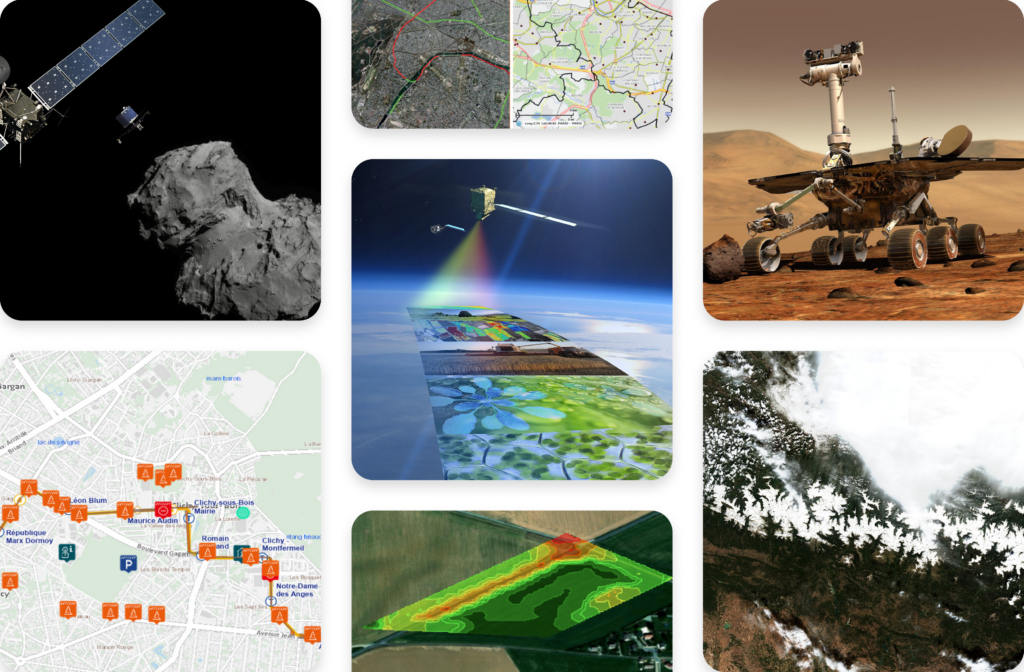Scientific & IT engineer - technical coordinator of a COPERNICUS operational service hosted on a cloud - Earth Observation M/F
Job description
Context
Since 2020, Magellium has been producing water, snow and ice cover products for Europe. These products, derived from satellite observations, indicate the presence of snow on the continental surface and the presence of ice on lakes and rivers, and are delivered by the Copernicus terrestrial service. They are generated as soon as Sentinel-1 and Sentinel-2 observations are made available by the European Space Agency (ESA).
Magellium coordinates the entire project, around which a consortium has been formed. Within the consortium, Magellium is the privileged contact with the customer. The consortium is made up of European laboratories and private companies responsible for the design, maintenance and upgrading of scientific snow and ice detection algorithms.
For its part, the Magellium team provides customer support, promoting the products to users on the one hand, and is also and above all responsible for the operational production of snow and ice data in near-real time (a few hours). This team is also responsible for developing and maintaining the scientific building blocks that process ice data. Sentinel-1 and Sentinel-2 satellite products, which serve as the basis for the creation of snow and ice products, are processed as soon as they are received on a European cloud, called DIAS. DIAS provides direct access to all Sentinel data, as well as a large-scale computing infrastructure and data distribution capabilities.
Job description
You will join a team consisting of a project manager, an operations manager and 2 thematic engineers, where you will be responsible for technical developments within the project. Your tasks will be as follows:
- Coordinate the technical development of activities within the team and with project partners: specify and plan technical tasks to be carried out, take part in project meetings with the customer.
- Evolution of the linked production system, to integrate new scientific algorithms or implement new functionalities for partners, customers, users and the team itself.
- Monitor product production on a daily basis in support of the operations manager
- Maintain the production system in operational conditions on DIAS, including data distribution.
The position will be filled in two stages. Firstly, you will need to understand the system architecture and the triggering mechanisms for product generation, so as to be able to detect and correct any anomalies, suggest optimizations and implement new functionalities.
Production monitoring and maintenance will be carried out primarily by the Operations Manager, but support will also be required, particularly during vacation periods.
Monitoring operations consists of :
- Detect any anomalies or delays in the day's production using the system dashboard or tickets opened by scientific partners (MANTIS tool), who are responsible for reporting any anomalies in the generation of their products.
- Identify errors and their causes on the basis of existing documentation. If the anomaly is new, document it in the project Git and in the operations manual, understand it, remedy it and, if necessary, patch it in anticipation of a possible next occurrence.
- Check that product access interfaces are working properly.
In the event of a system failure, either detected by the operations manager or by yourself, it may be necessary to consult the database of everything that is happening and has happened in the system, in order to identify the cause of the failure. If necessary, the faulty process or the entire system can be restarted. DIAS may also be responsible for disruptions, so it will be necessary to interface with their support team to inform them of the problems encountered and work with them to find a solution. Depending on the severity of the situation, communication with the customer may be required to inform partners and users of the system's operational status.
Some anomalies are blocking or recurring, and need to be corrected. The next step is to develop a patch to resolve the problem - either by acting at source or by automating error management - test the new version of the system on a test environment, and then deploy it on the production environment once its operability has been verified.
Therefore, when updating the algorithms, it will be necessary to deploy the corresponding new Docker image(s) and run simulations on the test environment prior to deployment on the production environment.
These manipulations require regular checks, and therefore rigor and organization. You need to be able to prioritize the correction of errors/anomalies according to their severity, frequency of occurrence, and the loss of resources they entail, and to carry out these corrections.
Occasionally, it may be necessary to run the calculation of certain products on virtual machines on DIAS (non-real-time, annual or monthly products, for example, or as part of a reprocessing campaign or the processing of an archive of satellite products). These will then be published on the dedicated user interfaces with the help of DIAS support. The publication of products on the catalog will be verified by consulting the API.
In view of the extension of the project and the introduction of new Copernicus products, you will have to specify how to integrate new scientific algorithms in close collaboration with the rest of the team and partners.
Generally speaking, you'll be asked to rely on existing documentation and tools, so that you can quickly become autonomous.
Writing skills will also be needed to help maintain this technical documentation, as well as to summarize events and actions in progress at weekly team meetings.
Effective communication with project partners and the DIAS support team will be a priority (in English only).
Technologies used
OpenStack, Terraform (nomad, vault, consul, packer and s3), Docker, Python, PostgreSQL( SQL/PLSQL), Java, View, Git, Kubernetes, RESTful APIs, bash
Medium-term development
Depending on requirements and the success of the position described above, the position could be extended in the medium term to include technical coordination of two or three geophysical processing chains for spatial data deployed on the cloud, with fairly similar characteristics.
Profile required
Trained as a Supaero Grande Ecole engineer, you have at least 4 years' experience in scientific development, ideally acquired in the space sector in the field of Earth observation.
First significant experience of developing a data processing chain on a cloud will be an asset.
At Magellium, diversity and inclusion are fundamental to our operations and rooted in our values. We respect the diversity of our employees, their experiences, backgrounds and disabilities, and offer equal opportunities to all. All different, all competent!
About us
Magellium Artal Group has over 26 years' experience in data engineering, imaging and IT technologies. We use innovation and know-how to meet our customers' needs, even the most specific and complex. As an active player in our ecosystem, we advocate strong, meaningful values and give priority to achievable commitments and concrete actions.

Choose a friendly, dynamic company
Stimulating projects
Climate, hydrology, defence, software development... the projects are meaningful, numerous and diverse!
A human-centred company
We advocate local management, autonomy in work and ease of communication.
Are you looking for a career?
At Magelllium Artal Group, we aim to share our knowledge, learn from others and develop everyone’ skills.
A company of engineers for engineers
At Magellium Artal Group, you'll find trained engineers... even in the management offices!
Benefits in the plural!
Our Works Committee is constantly working to introduce new benefits to make our employees feel recognised and valued. In addition to paying 50% of public transport fares, we offer luncheon vouchers, a profit-sharing bonus, vacation bonuses, numerous partnerships with gyms, discounts with many companies, discounts on in-house activities, and more.
Work-life balance
The well-being of our employees is a priority, and this is reflected in our flexible working arrangements. That's why we offer RTT and up to 2 days of remote work per week.
Dynamic corporate life
Afterworks, karaoke nights and blind tests are just some of the events we regularly organise!
Sports and music rooms!
Our premises include a gym and multi-activity room (yoga, massage, pilates), a music room and a games room with table soccer, Nintendo Switch and Xbox for relaxing lunch breaks.

Magellium Artal Group is committed to contributing to social and environmental issues
As part of its strategic orientations, we wanted to define areas of improvement for the implementation of responsible governance in line with the challenges of sustainable development and the role of employees in the company.
89/100
Gender equality index in 2023
79kg of CO2*
saved in 2023 *according to Easytri
Over 350 projects
We have contributed and continue to contribute to numerous French, European and international projects. See our dedicated page for a non-exhaustive list of projects in which we have participated or are currently participating.

Similar offers
- Autres, Développeur(e) informatique, Ingénieur(e) spécialisé(e), Observation de la Terre
- Space
- Young graduates
- Internship
- Ramonville-St-Agne
- Autres, Développeur(e) informatique, Ingénieur(e) spécialisé(e), Observation de la Terre
- Space
- Young graduates
- Internship
- Ramonville-St-Agne
- Autres, Développeur(e) informatique, Ingénieur Géomatique, Ingénieur(e) spécialisé(e)
- Défense & Sécurité, Spatial
- Young graduates
- Internship
- Ramonville-St-Agne
FAQ
Do you hire trainees?
Yes, we hire end-of-study internships. These internships can then develop into permanent contracts (50% of internships transformed into permanent contracts by 2023).
Do you take on work-study students?
We can take on work-study students subject to availability of places and the company/school rhythm, as some projects are not always compatible with a work-study rhythm.
What is the recruitment process at Magellium Artal Group?
The process is fast! We first contact you for an initial discussion with the HR department by telephone or, ideally, on site at our premises. This allows you to immerse yourself in the company and discuss our vision, our values and the job's missions. Then, depending on the nature of the position, we propose a technical discussion with the project manager or the manager of the unit to which you will be assigned. We make sure that each exchange is as natural as possible to put you in the best possible conditions. If there is a specific arrangement to be made for your situation, please let us know!
How do I apply for a job at Magelium Artal Group?
You can apply for our vacancies directly on our website www.magellium.com in the Join us tab.
What documents should I include in my application?
Your application must include a maximum 3-page CV. Little bonus: be creative and original in your presentation! (video, infographics for example).
How long does it take to receive a response to an application?
We respond to applications within 3 days on average.
Any maintenance tips?
Be yourself! At Magellium Artal Group, we believe in a friendly, relaxed working environment. So come as you are, and don't hesitate to ask us questions!
How long is the trial period for an engineer?
The trial period is 4 months. This period may be renewed in certain situations, but not systematically.
Will I be provided with a work computer?
Yes, when you arrive you'll be provided with a workstation complete with monitor, PC, keyboard and mouse. Office supplies will also be at your disposal.
Is remote work possible?
Our company agreement provides for the possibility of remote work up to 2 days a week. Remote working is possible as soon as the trial period has been validated and provided the project allows it (for example, this is not the case for defense projects for reasons of confidentiality).
How do I get to Magellium Artal Group's premises?
Our Toulouse and Courbevoie sites are accessible by public transport (metro and/or streetcar).
What are the company's commitments in the fight against climate change?
At Magellium Artal Group, we are committed to the fight against climate change through various actions.
We raise our awareness of ecogestures, such as switching off equipment, using cups instead of plastic ones, and sorting waste. We organize concrete actions such as challenges during sustainable development week.
When it comes to digital technology, for example, we apply responsible practices to our IT equipment and systems. In 2023, six employees received training in eco-design.
We also promote environmentally-friendly transport and offer bicycle mileage allowances. As a result, 20% of our employees come by bike and 25% use public transport.
If you would like to find out more about our CSR policy, ➡️ visit our dedicated page !
What are your social and financial benefits?
We offer a wide range of benefits to our employees: in addition to a 50% public transport pass, we offer luncheon vouchers, profit-sharing bonuses, vacation bonuses, mileage allowance for bicycles, a dynamic working environment and much more!
Do you organise activities between co-workers at Magellium Artal Group?
Yes, our Social and Economic Committee (ESC) regularly organises activities for colleagues. From escape games to music evenings and Mario Kart tournaments, you'll find plenty of opportunities to meet your colleagues and strengthen ties!

